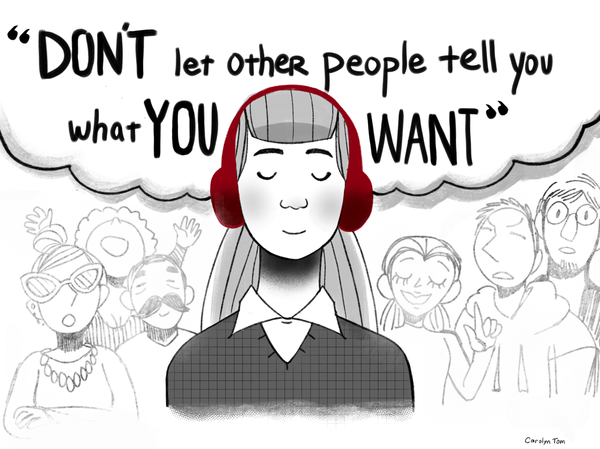We like quick.
Quick reads, quick retorts, and quick decisions.
While the things we're capable of doing continue to expand exponentially, the time in our day remains constant.
This has made quick a more valuable quality than ever.
Maybe that's why my first post this week is resonating so much with people.
It's a quick one.
Now, on to this week's ideas...
* * *
"It's better to be the one who tried than the one who wondered."
The other night at midnight I had a bunch of ideas floating around my head about what it takes to succeed as a creator.
My collection of 10 tips for creators spells out those ideas in a post that will only take you a minute to read.
The ideas include to start by learning to finish, that people run toward simple and from complicated, and it's important to remember everything you're sure of may be wrong.
* * *
"You can't analyze the future. You can't run the numbers on the future. You have to go actually create it."
People pay a LOT of money to go to Stanford and take one of its most popular classes - a class about how to design your life.
But you can save a lot of time and money by watching this 18-minute DO Lectures video of a talk from one of the class professors, Dave Evans.
* * *
"Imagining a perfect day and actually striving for it has much of the same effect. It implies that the problem is your lack of control, the absence of order in your affairs, rather than your ability to function in multiple shifting states and environments."
Trying to figure out what your perfect day looks like is more dangerous than it seems.
Matthew Sweet examines the tyranny of the perfect day and suggests trying to create the perfect circumstances for yourself can often create more problems and anxiety than it solves.
* * *
"Enjoy 10-15 minutes of quiet contemplation, and you'll find that your memory of the facts you have just learnt is far better than if you had attempted to use that moment more productively."
If you want to remember this article, take a break after reading it.
That's because the BBC points to research that shows a key to improving your memory is to take a short break immediately after consuming the information you want to remember.
One study found a group of people who took a break after consuming a list of information remembered 50% of it compared to a group who didn't take a break and remembered only 28%.
* * *
"Leaders trying to accomplish a worthy mission have to cultivate the ability to identify the one, two, or three essential issues facing them at a given moment. It is never five or ten."
One of the best ways to learn from Abraham Lincoln may be to read this collection of lessons other successful people have taken from studying him.
* * *
"You can't buy influence. You can't borrow someone's influence. For an influencer to really connect with somebody, there has to be KLT - know, like and trust."
Many marketers highly overrate the power of influencer marketing and fundamentally misunderstand how influence works.
He suggests influence is immeasurable because there's no such thing as influence without context and you can't have universal influence.
* * *
"When you spout facts and data that the audience doesn't understand, you make them feel dumb. You want to do the opposite–your talk should make them feel smart."
Whether you're working on your own TED Talk, preparing to teach a class, or just planning a presentation for colleagues, this Fast Company article can help you improve it.
* * *
"Don't think of a piece of content like a finished product. Think of a piece of content as a line of code."
Don't worry, you don't need any technical expertise to understand the analogy at the heart of this post.
Steve Bryant points out products work best when they adapt to market feedback and the same is true for content.
* * *
"Coming up with the perfect productivity system, the perfect to do list software — it's not important. It's procrastination on the things that are truly important."
I share a lot of advice about how to optimize your life, so it may seem odd that I'm sharing something that suggests doing so is a mistake.
His six reasons not to optimize include that the savings never get realized, optimizing is a trap of dissatisfaction, and it's a good way to get things to break.
* * *
"People tell you to be professional, but what you need is to be unique. 'Professional' is too often code for 'do things the way everybody else does them.'"
Success advice is everywhere, but most of it is wrong.
* * *
WHERE I FOUND THIS STUFF
I discovered some of this week's ideas from the newsletters of Charles Chu, Postanly, and Further - they're awesome and worth your time.
* * *
Dig this newsletter but haven't subscribed yet?
Thanks!
Josh



No comments:
Post a Comment